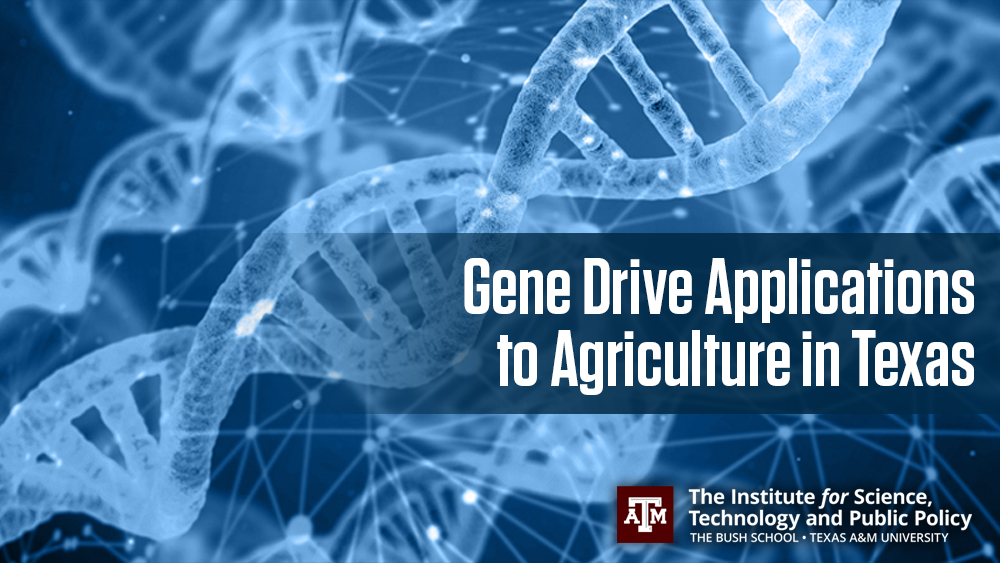
The Institute of Science, Technology, and Public Policy (ISTPP) at the Bush School of Government & Public Service at Texas A&M University is proud to announce a new featured research project titled “Gene Drive Applications to Agriculture.”
Gene drive is a new genetic-based technology in the early stages of research. Among other potential applications, gene drive is being considered for managing agricultural pests. However, little is known about stakeholders’ and the public’s views on this technology. The multidisciplinary research team, funded by the U.S. Department of Agriculture, seeks to understand the social impacts, perceived risks, underlying values, and behavioral responses of stakeholders and the public to gene drive technologies in agriculture. The fundamental objective of the project is to assess the conditions for public and stakeholder engagement concerning the potential research, development, and use of gene drive technology in the management of agricultural pests in order to inform appropriate policy responses to gene drive in agriculture. The study team has devised a four-pronged approach to achieve its primary objective.
“This project included multiple outreach and feedback activities that we are currently using to identify whether people think gene drive research should be pursued or not and what people think matters in deciding this,” stated Dr. Arnold Vedlitz, the project principal investigator and Director of ISTPP. He added, “This information is important for helping scientists, decision makers, and policy makers make informed and acceptable choices about the possible use of gene drive in agriculture.”
The success of agricultural productivity in the United States is essential to U.S. and international markets. Various pest species and harmful weeds jeopardize U.S. agriculture. Many pest species have developed resistance to conventional pest management strategies, while others are developing this resistance. Some agricultural and natural science researchers are beginning to explore whether gene drive technology can be used to help manage certain pest species that cause critical losses in agricultural yields. Reduced yield generates massive economic losses for producers and increased costs for consumers. It is important that the potential outcomes of using gene drive are identified, evaluated, and carefully considered in any decisions made about this new technology.
ISTPP conducts nonpartisan, interdisciplinary, scholarly examination of public policy issues and communicates research-based knowledge to academics and practitioners and to the public and decision makers.

